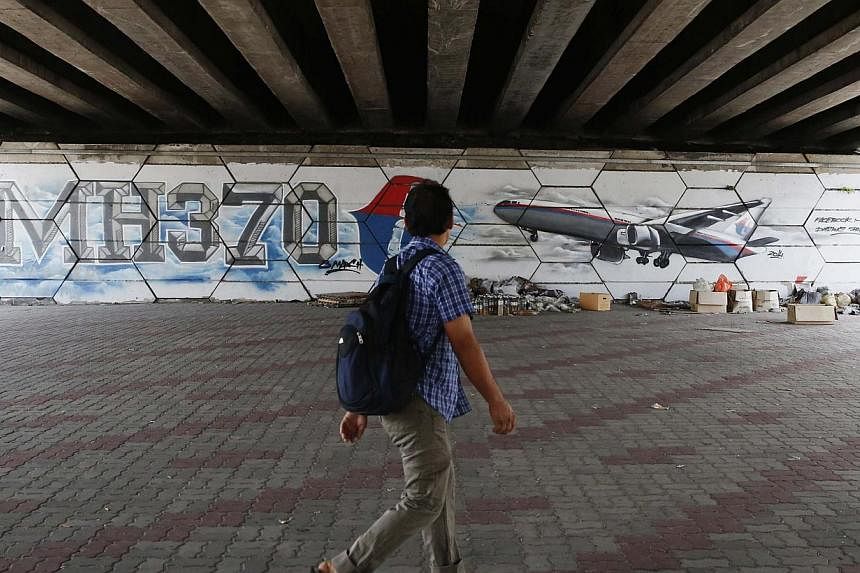A shipment containing 221kg of lithium ion (Li-ion) batteries on Malaysia Airlines (MAS) Flight MH370 was not screened before being loaded on the plane that disappeared a year ago.
An interim report by the international investigation team released today said the cargo from Motorola Penang was "inspected physically" by MASKargo in Penang, but did not go through security screening before being transported in a truck to Kuala Lumpur International Airport.
"The shipment arrived at KLIA Cargo Complex on the evening of March 7, 2014, before being loaded onto MH370 without going through additional security screening," said the report by the Malaysian ICAO Annex 13 Safety Investigation Team for MH370.
The report seen by The Straits Times, however, said the batteries - a known fire hazard on flights - were not regulated as dangerous goods because the packing adhered to International Civil Aviation Organisation (ICAO) guidelines.
The batteries were part of a 2,453kg shipment by Motorola that also contained chargers and radio accessories, according to the 200-plus-page document released at noon today to the next-of-kin of the flight's 239 passengers, before being made public at 3pm.
American carriers United Airlines and Delta announced this year they would no longer carry bulk shipments of lithium-ion batteries after Federal Aviation Administration tests found overheating batteries could cause major fires.
Reports say Li-ion batteries have caused 140 mid-air incidents in the past 20 years.
MAS chief executive Ahmad Jauhari Yahya had said a fortnight after the plane was lost that "they are not big batteries and they are basically approved under the ICAO under dangerous goods", adding that they were checked several times to ensure compliance with guidelines.
It is unclear if Li-ion is not routinely screened before being loaded, but the report said that between January and April last year, MAS carried 99 such shipments to Beijing.
Mr Lee Khim Fatt, whose wife was part of the cabin crew, questioned why the Li-ion batteries did not have to be scanned. "Common sense would tell you that airport cargo is a very important area. Lay people have to be scanned through. So why not larger cargo?"
Earlier this morning, Prime Minister Najib Razak promised that Malaysia remains committed to the search that is ongoing in the treacherous southern Indian Ocean.
"The disappearance of MH370 is without precedent, and so too is the search - by far the most complex and technically challenging in aviation history. The lack of answers and definitive proof - such as aircraft wreckage - has made this more difficult to bear," he said in a statement.
The 19-member investigation team interviewed more than 120 people. Team chief Datuk Kok Soo Chon, in a live braodcast on national television, said its objective was "the prevention of future accidents or incidents and not for the purpose to apportion blame or liability".



